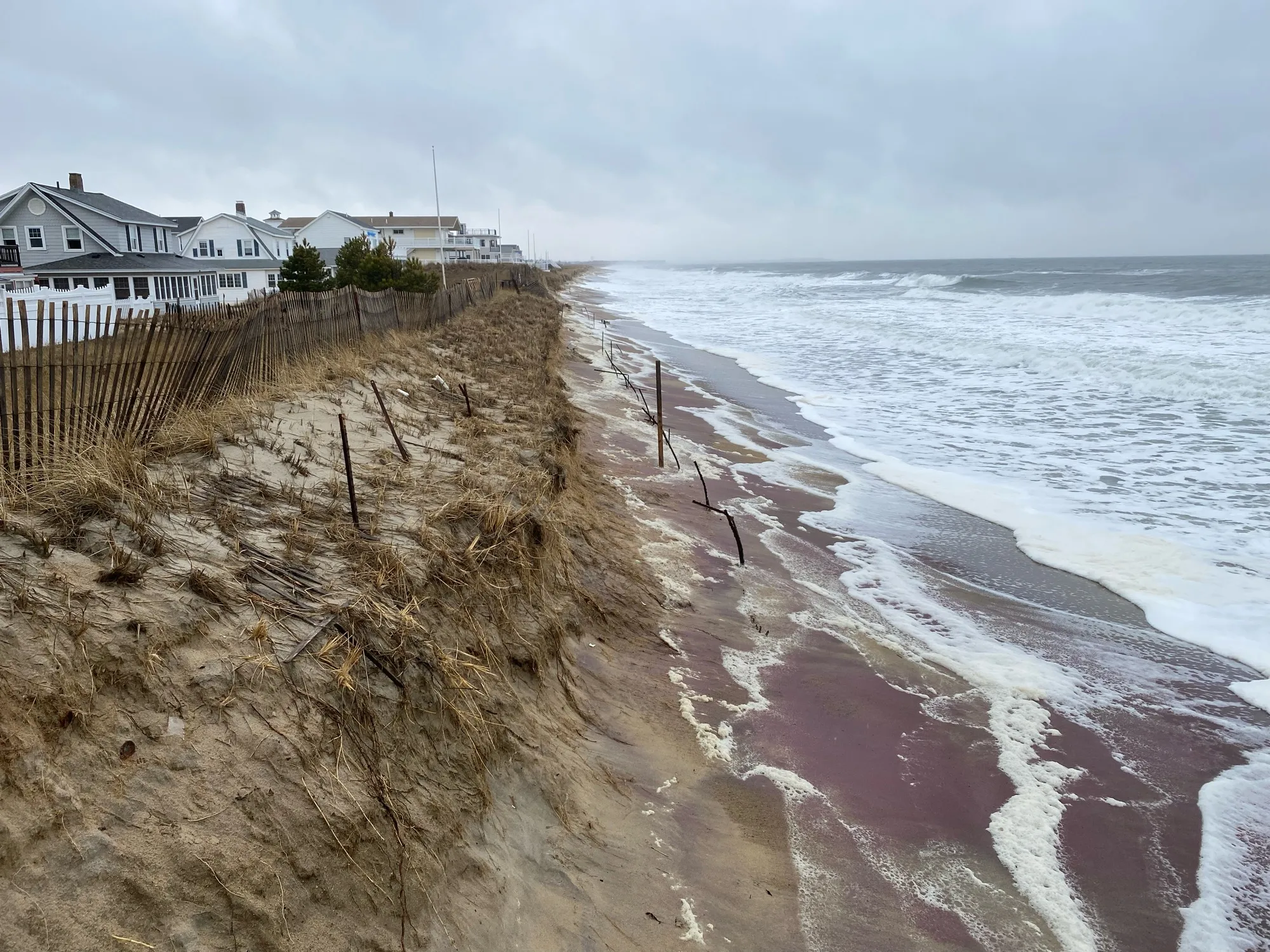Excerpt:
After years of resistance, some cities and towns plan to move back from eroding coasts.
As waters rise, coastal residents are increasingly facing a difficult choice: try to relocate in a difficult housing market and take losses on their homes, or get comfortable with a future where there may be multiple feet of water in their living rooms.
“Eventually people are going to move, either of their own volition or because we facilitate it, and there has to be somewhere for them to go,” said Deanna Moran, vice president of healthy and resilient communities at the Conservation Law Foundation.
Enter “managed retreat” – a process of moving infrastructure, people, and property out of vulnerable coastal areas through policies that could include options like voluntary buyouts, relocating roads, and changing zoning districts. Massachusetts, which expects almost two feet of sea level rise by 2050, may have a lot of seaside ground to cover.
The state boasts about 1,520 miles of coastline, spanning salt marshes, beaches, rocky shores, and dunes along the borders of 73 cities and towns. After years of resistance to the idea of moving back from their shorelines, recent studies find, those municipalities are starting to reconsider.
“More and more people are embracing it and it is just becoming more of a standard option and actually being implemented, though somewhat sporadically,” said Richard Murray, deputy director and vice president for science and engineering at the Woods Hole Oceanographic Institution. “But when those of us who were first talking about it mentioned it, it was not well received at all.”
Murray started writing about managed retreat about a decade ago, when climate change skepticism was far more common than it is today, even in liberal coastal Massachusetts. At the time, he said, it was easy to shrug off fears of sea level rise as “oh, that’s just Al Gore.” But tides have shifted.
“Back then, there was disagreement and a lack of understanding of the science or a lack of understanding of the scale of the problem,” Murray said. “Now everybody gets it. I mean, you’ve got Hawaii frickin’ burnin’ up, you’ve got tornados in Weymouth. I mean, people can see it. So that’s really really huge.”
Massachusetts residents overwhelmingly think climate change will be a very (48 percent) or somewhat (29 percent) serious problem to the state if left unchecked, according to a poll last year sponsored by the Barr Foundation and conducted by the MassINC Polling Group, which shares a parent company with CommonWealth. Majorities say that climate impacts, including heat waves, coastal flooding, and more powerful storms, are already or very likely to hit the state in the next five years.
While some communities are considering managed retreat to mitigate flooding and sea level rise impacts, few are actually pursuing it, according to a report released this summer from the Urban Harbors Institute at the University of Massachusetts Boston.
“We were just trying to test the waters and see whether or not there was an appetite for a conversation about managed retreat,” report author and director of the institute Kristin Uiterwyk said at a national conference about managed retreat in June, “so we were pleasantly surprised that there was…”









